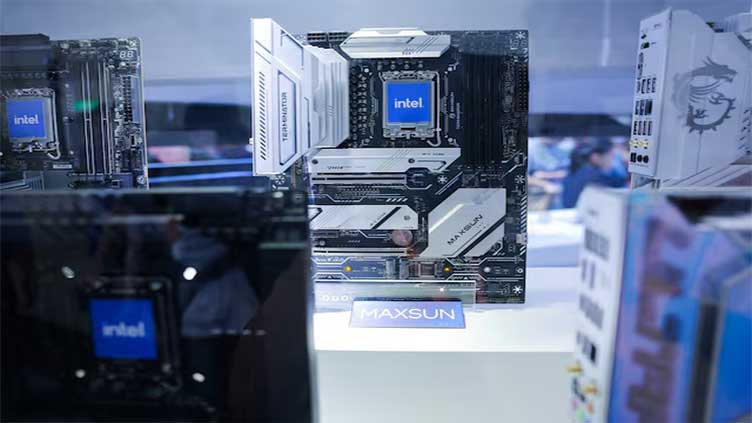Intel shares set to fall most in 24 years as it struggles with turnaround

Business
Shares of the company were down about 20% in premarket trading
(Reuters) – Intel was set to erase nearly $25 billion in market value on Friday in what would be its worst selloff since 2000 after it suspended its dividend and slashed its workforce to fund a costly turnaround for its chip-making business.
Shares of the company were down about 20% in premarket trading after Intel late on Thursday forecast quarterly revenue below estimates and said it was cutting 15% of its workforce, raising worries about its ability to catch up to Taiwan's TSMC and other chipmakers it has fallen behind in recent years.
The Santa Clara company was once the world's leading chipmaker, with the "Intel Inside" logo a valuable marketing feature on personal computers in the 1980s and 90s.
Part of the dot-com era's Four Horsemen – along with Cisco Systems, Microsoft and Dell – Intel's stock market value peaked at nearly $500 billion in 2000 before slumping in that year's market selloff and never fully recovering.
It continued to dominate in hefty PC chips, but was caught off foot by the launch of Apple's iPhone in 2007 and other mobile devices that demanded lower power and less pricey processors.
If Friday's losses hold, Intel's market capitalization would fall to about $100 billion, equivalent to less than 5% of Nvidia's and about 40% of Advanced Micro Devices', the two PC chipmakers it heavily dominated for decades until recently.
The selloff was also set to leave Intel worth less than Applied Materials and Lam Research companies that supply equipment for Intel's fabrication plants.
"Intel has been one of the forgotten horsemen of technology the last couple decades," Michael Schulman, chief investment officer of Running Point Capital said. "Never overtaking its year 2000 highs and struggling to get earnings back to where they were before the AI revolution."


